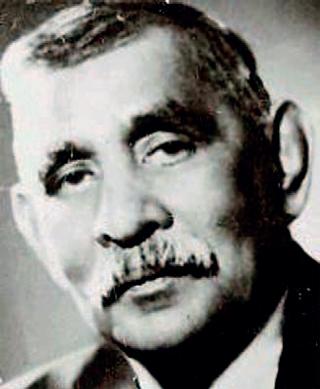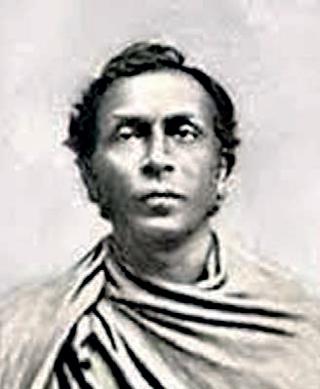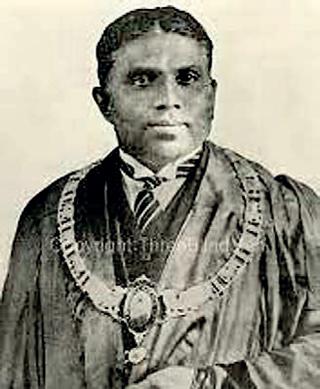Reply To:
Name - Reply Comment
DS Senanayake Anagarika Dharmapala A.E.Goonesinghe


 Having been freed from British rule, we were at liberty to do whatever we wanted to do. Yet, nothing substantial was done by our political leaders, whichever party they belonged to. Today’s politics do not put country and people first. It’s a case of back-stabbing, jealousy, blame-game, and so the list goes on. Sadly, Sri Lanka is a country of missed opportunities
Having been freed from British rule, we were at liberty to do whatever we wanted to do. Yet, nothing substantial was done by our political leaders, whichever party they belonged to. Today’s politics do not put country and people first. It’s a case of back-stabbing, jealousy, blame-game, and so the list goes on. Sadly, Sri Lanka is a country of missed opportunities

 Right now, we are all speaking of independence. But, what have we gained from independence? What have we carried with us through the years? What has proven positive for our nation?
Right now, we are all speaking of independence. But, what have we gained from independence? What have we carried with us through the years? What has proven positive for our nation?
There was a huge struggle in India and there was agitation in Sri Lanka. India lost a lot of lives and faced destruction during their fight for independence; but to Sri Lanka, it was thankfully given without much bloodshed. All those who lost their lives for this cause, those who went to jail, and those who agitated in some form did not do so in vain; and we owe them our immense gratitude.
But, what indeed is there to celebrate? Well, for one, democracy is there to celebrate. 75 years of democracy! However, the rulers who took over in 1948 mainly wanted to replace the British and continue the regime of controlling their subjects and cultivate and nurture their own interests. In other words, democracy in its true sense of the word, i.e. rule of, by and for the people, was not practiced then and has not been properly practiced until today. Issues regarding minorities, equality, development of rural areas etc. have been disregarded. One example is the miserable state of estate workers whose plight has remained more or less the same for the past 75 years.
Is that what our freedom fighters and national heroes agitated for against the slavish British rule that broke all records of human rights as the term is projected today? Within this struggle for independence, what did we accomplish for the greater good of the country? In Britain’s destructive divide-and-rule policy, the nation was torn up by national and religious issues.
 Is that what our freedom fighters and national heroes agitated for against the slavish British rule that broke all records of human rights as the term is projected today? Within this struggle for independence, what did we accomplish for the greater good of the country?
Is that what our freedom fighters and national heroes agitated for against the slavish British rule that broke all records of human rights as the term is projected today? Within this struggle for independence, what did we accomplish for the greater good of the country?

If we reflect on a few selfless politicians who had only their people and not personal interests at heart, there is, of course, D.S. Senanayake who contributed tremendously. He had the foresight that one day we would be an independent country and gain self-sufficiency in food. With this aim, he started restoring old irrigation works, clearing jungles and initiating colonization schemes. Another great service done by him was introducing the land act in the state council, thereby helping the peasantry to acquire the land they had lost to the English. The greatest act of DS as regards to independence was, getting the independence bill passed in the state council amidst lot of opposition.
And then, there was Angarika Dharmapala, another patriot and visionary, who fought for the revival of Buddhism and the cultural revolution which the British tried to suppress. - Today, Sri Lanka being a Buddhist country, has the liberty to celebrate it according to its traditions. Dignity as a nation was achieved thanks to him.
Another major achievement was the right to Universal Adult Franchise that was fought for by A.E. Goonesinha and given to the country in 1931. Although there was much opposition to this by the Ceylon National Congress, Goonesinha was determined and went at his own expense to Britain to canvass the members of the British Parliament and also the members of the Donoughmore commission. Hence, his perseverance and courage made it possible that Sri Lanka’s men and women, today, enjoy the right to vote and thus have a place in society.
 Democracy in its true sense of the word, i.e. rule of, by and for the people, was not practiced then and has not been properly practiced until today. Issues regarding minorities, equality, development of rural areas etc. have been disregarded. One example is the miserable state of estate workers whose plight has remained more or less the same for the past 75 years.
Democracy in its true sense of the word, i.e. rule of, by and for the people, was not practiced then and has not been properly practiced until today. Issues regarding minorities, equality, development of rural areas etc. have been disregarded. One example is the miserable state of estate workers whose plight has remained more or less the same for the past 75 years.

Another positive aspect is the workers being given their rights, the waiver of the poll tax and their entitlement to celebrate May 1 as the Workers Day. It was again A.E. Goonesinha who fought for these privileges at the risk of his life as any dissention during British rule meant being shot on sight or put in jail.
There could have been much more from gaining Independence that we could have carried through to benefit the country. The English language, the education and health system, devolution of power (central, regional and local), all communities having equal opportunities and growing together and development in general. All this has sadly been neglected for 75 years and not addressed as it should have been.
Having been freed from British rule, we were at liberty to do whatever we wanted to do. Yet, nothing substantial was done by our political leaders, whichever party they belonged to. Today’s politics do not put country and people first. It’s a case of back-stabbing, jealousy, blame-game, and so the list goes on. Sadly, Sri Lanka is a country of missed opportunities. Even in the hour of need political leaders, corporate leaders and people in general do not unite to work together. They are all divided by petty party politics and selfish motives.
Nonetheless, it is indeed heartening to know that some fruits of Independence can be enjoyed today, and they should not be forgotten. At least a few of our leaders of yesteryear gave the country some beneficial achievements.